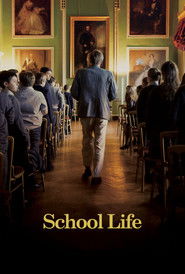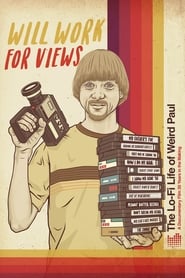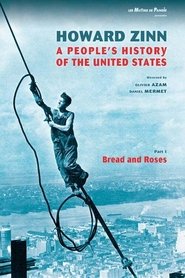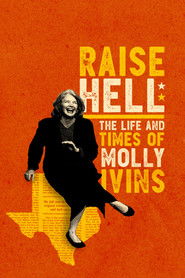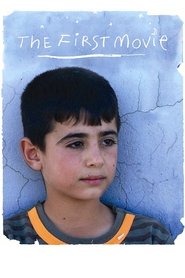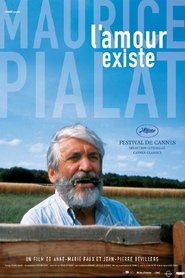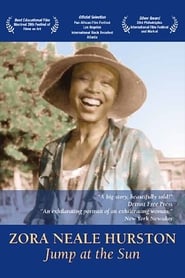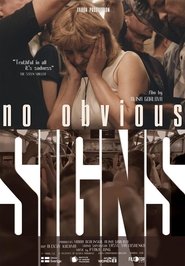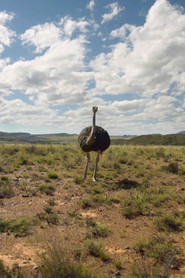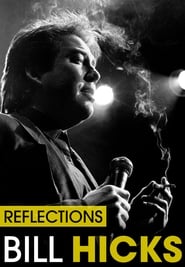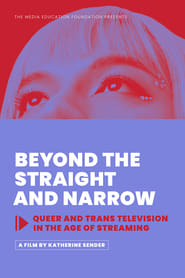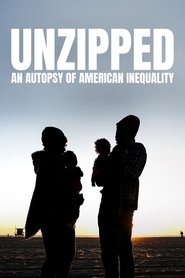Popular Documentary Movies on Kanopy - Page 141
-
School Life
2017
School Life
2017
star 6.6John and Amanda teach Latin, English and guitar at a fantastical stately home-turned-school. Nearly 50-year careers are drawing to a close for the pair who have become legends with the mantra: “Reading! ’Rithmetic! Rock ’n’ roll!” But for pupil and teacher alike, leaving is the hardest lesson. -
Wicker Kittens
2014
Wicker Kittens
2014
Every January, the country's largest jigsaw puzzle contest is held in St. Paul, Minnesota. Choose your favorite team and watch them try to put the pieces back together. -
Will Work for Views: The Lo-Fi Life of Weird Paul
2017
A film exploring the life of “Weird Paul.” After 30 years, 2000 videos, 800 songs, & 42 albums, he’s still not giving up on his dream. -
Crazy About Tiffany's
2016
star 6.9A provocative and rare glimpse at the most iconic luxury jeweler in the world. From past to present, discovering the behind the scenes creation to those beholden to its charm, Tiffany & Co. is unveiled like never before. -
Howard Zinn: A People's History of the United States
2015
star 6.9Between 1900 and 1920 more than 14 million immigrants arrived in the US, like Howard Zinn's parents. They came fleeing poverty or war, or racism, or religious persecution. They dreamed of a promised land, of wealth, or simply of a better life. -
Raise Hell: The Life & Times of Molly Ivins
2019
star 7.4Molly Ivins was six feet of flame-haired Texas trouble. She was a prescient political journalist, best-selling author, and Bill of Rights warrior. She took no prisoners, leaving both sides of the aisle laughing and craving more of her razor-sharp wit. It's time to raise hell like Molly! -
The First Movie
2009
The First Movie
2009
star 7.3Filmmaker Mark Cousins, who was brought up in a Northern Irish war zone, travels to Goptapa, a Kurdish-Iraqi village of just seven hundred people on a tributary of the Tigris river, and tries to make a dream film about a place that is normally only portrayed in current affairs programmes. He gives the kids cameras, and they make their own little movies about war, love, a fish that goes to a magical place, and a chicken who debates justice. -
Buñuel: A Surrealist Filmmaker
2021
star 6.8Javier Espada explores how Luis Buñuel, one of the greatest precursors of surrealist cinema through works like An Andalusian Dog and The Golden Age, began to move away from this movement but never completely abandoned it, maintaining a strong oneiric element in his films. Taking us deep into his past and evolution as a creator, this documentary provides an unprecedented window into the world and work of an irreplaceable genius whose influence has reached the rest of the arts. -
Viral: Antisemitism in Four Mutations
2020
star 2Antisemitism in the US and Europe is spreading and is seemingly unstoppable. Andrew Goldberg examines its rise traveling through four countries to follow antisemitism and their victims, along with experts, politicians and locals. -
Maurice Pialat, l'amour existe
2007
A documentary about the life and career of Maurice Pialat produced by his widow, the accomplished film producer Sylvie Pialat. The film interweaves clips from his films with interview footage of Pialat, who speaks of growing up as an only child, his interest in painting, his early influences in cinema from Yasujiro Ozu to John Ford, his disaffection with the French New Wave, and the theme of abandonment in his films. Pialat’s remarks offer insights into his aesthetic strategies and hint at his reputation as a challenging, irascible director, known for having pushed his actors to deliver raw and powerful performances. -
Last Will. & Testament
2012
star 7It's the greatest mystery of all time; who wrote the works of Shakespeare? DEREK JACOBI leads an impressive cast on a quest to uncover the truth behind the world's most elusive author and discovers a forgotten nobleman whose story could rewrite history. -
Amandla! A Revolution in Four-Part Harmony
2002
star 6.4The struggle to eradicate apartheid in South Africa has been chronicled over time, but no one has addressed the vital role music plays in this challenge. This documentary by Lee Hirsch recounts a fascinating and little-known part of South Africa's political history through archival footage, interviews and, of course, several mesmerizing musical performances. -
Zora Neale Hurston: Jump at the Sun
2008
star 8Zora Neale Hurston, path-breaking novelist, pioneering anthropologist and one of the first black women to enter the American literary canon (Their Eyes Were Watching God), established the African American vernacular as one of the most vital, inventive voices in American literature. This definitive film biography, eighteen years in the making, portrays Zora in all her complexity: gifted, flamboyant, and controversial but always fiercely original. -
Let the Child Be the Guide
2017
star 6.8As a young father, watching his daughter go through her life experiences, film director Alexandre Mourot discovered the Montessori approach and decided to set his camera up in a children's house (3 to 6 years of age) in the oldest Montessori school in France. Alexandre was warmly welcomed in a surprisingly calm and peaceful environment, filled with flowers, fruits and Montessori materials. He met happy children, who were free to move about, working alone or in small groups. The teacher remained very discreet. Some children were reading, others were making bread, doing division, laughing or sleeping. The children guided the film director throughout the whole school year, helping him to understand the magic of their autonomy and self-esteem - the seeds of a new society of peace and freedom, which Maria Montessori dedicated her life work to. -
The End of Meat
2017
The End of Meat
2017
star 7.5Although evidence of meat consumption's negative impact on the planet and on human health continue stacking up as animal welfare is on the decline, humanity's love affair with hamburgers, steaks, nuggets and chops just doesn't end. In The End of Meat, filmmaker Marc Pierschel embarks on a journey to discover what effect a post-meat world would have on the environment, the animals and ourselves. He meets Esther the Wonder Pig, who became an internet phenomenon; talks to pioneers leading the vegan movement in Germany; visits the first fully vegetarian city in India; witnesses rescued farm animals enjoying their newly found freedom; observes the future food innovators making meat and dairy without the animals, even harvesting "bacon" from the ocean and much more. The End of Meat reveals the hidden impact of meat consumption; explores the opportunities and benefits of a shift to a more compassionate diet; and raises critical questions about the future role of animals in our society. -
No Obvious Signs
2018
No Obvious Signs
2018
star 8.5What is left backstage of the heroic videos of our warriors in Ukraine? What do they have to face, one on one, in peaceful life, and where does the war stop? -
Super Senses
2021
Super Senses
2021
We take our features, our noses, eyes, and ears for granted, but they are pretty weird things until you look at the nose of a tapir or desman, the eyes of a cuttlefish or chameleon, or the ears of a seal or elephant. There is an almost endless variety of designs, and some are downright odd! -
Bill Hicks: Reflections
2015
star 6.6Comedy Dynamics sits down with Bill Hicks' brother, Steve, who tells old stories, squashes old rumors and reveals the brother and son behind the late comedian. Told amidst old and rare footage, it’s a must watch for any fan. -
Beyond the Straight and Narrow
2023
How did the rise of LGBTQ visibility, political progress, and digital technologies in the 2000s come together to offer the abundance of complex queer and transgender representations we see today? Media scholar Katherine Sender shows how LGBTQ visibility and political progress have combined with new digital media technologies and television platforms to produce an increasingly complex range of queer and transgender representations. -
Unzipped: An Autopsy of American Inequality
2021
A provocative feature doc about America's affordable housing crisis told through the prism of iconic Venice CA 90291's struggle with the growing income divide.
 Netflix
Netflix
 Amazon Prime Video
Amazon Prime Video
 Apple iTunes
Apple iTunes
 Apple TV Plus
Apple TV Plus
 Disney Plus
Disney Plus
 Google Play Movies
Google Play Movies
 Paramount Plus
Paramount Plus
 Hulu
Hulu
 HBO Max
HBO Max
 YouTube
YouTube
 fuboTV
fuboTV
 Peacock
Peacock
 Peacock Premium
Peacock Premium
 Amazon Video
Amazon Video
 The Roku Channel
The Roku Channel
 AMC+
AMC+
 Kocowa
Kocowa
 Hoopla
Hoopla
 The CW
The CW
 Vudu
Vudu
 Starz
Starz
 Showtime
Showtime
 PBS
PBS
 Pantaflix
Pantaflix
 FXNow
FXNow
 Tubi TV
Tubi TV
 Kanopy
Kanopy
 Comedy Central
Comedy Central
 Crunchyroll
Crunchyroll
 Microsoft Store
Microsoft Store
 Redbox
Redbox
 Sun Nxt
Sun Nxt
 ABC
ABC
 DIRECTV
DIRECTV
 Crackle
Crackle
 Fandor
Fandor
 Plex
Plex
